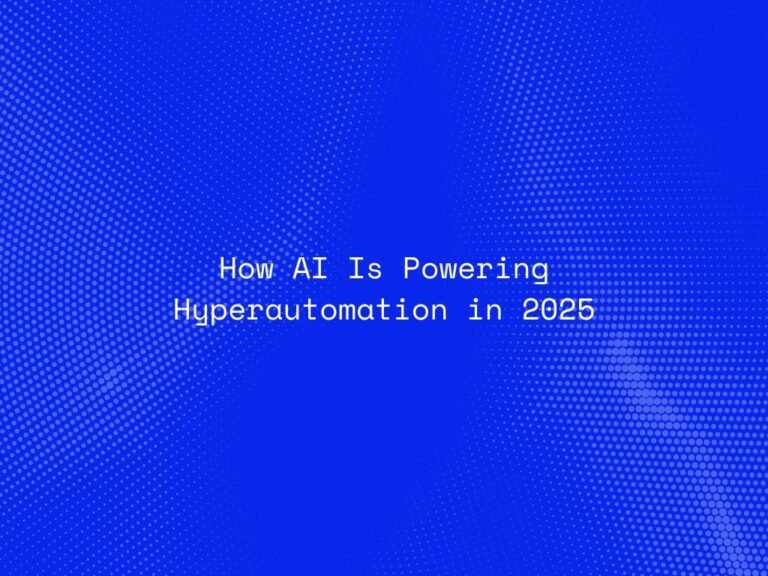What used to be a straightforward process of typing keywords into a search bar and browsing a list of blue links is rapidly evolving into something more intelligent and conversational. With the rise of generative AI-powered search—think Google’s Search Generative Experience (SGE) or Bing’s integration with OpenAI’s models—users are no longer just receiving results. They’re getting answers.
This shift is dramatically changing the rules of Search Engine Optimization (SEO). As search engines become smarter, traditional ranking tactics are being challenged. Content creators, marketers, and SEO professionals must now rethink how they build visibility in an age where AI can summarize, synthesize, and even personalize search results in real time.
In this blog, we’ll break down what generative AI search means, how it’s reshaping SEO strategies, the challenges and opportunities ahead, and what you can do to thrive in this new environment.
What Is Generative AI-Powered Search?
Generative AI-powered search goes beyond simple keyword matching. It uses Large Language Models (LLMs)—such as GPT-4, PaLM, and Claude—to understand the user’s query in depth, pull in relevant information from multiple sources, and generate a coherent, contextual response right within the search interface.
Instead of showing a list of websites ranked by relevance, these new search engines provide:
-
Direct answers to complex questions
-
Summaries that combine content from different sources
-
Personalized follow-ups based on search history or intent
-
An interactive, chat-like experience that evolves in real time
With tools like Google SGE, Bing AI, You.com, and Perplexity AI, we are entering a world where search becomes dialogue, and content is curated not just for accuracy, but for utility and comprehension.
How This Changes Search Behavior
1. The Decline of the Click
AI-generated answers reduce the need for users to click through to websites. The “zero-click search” trend is accelerating, and users are often satisfied with the AI’s summary—meaning fewer visits to publisher sites.
2. From Keywords to Conversations
Users are no longer entering choppy phrases like “best SEO tools 2025.” They’re asking, “What are the best SEO tools to use this year and why?” The shift toward natural language and long-tail queries means content needs to align with real questions and intent.
3. Increased Expectations
Users expect fast, tailored, and credible answers. Generic or keyword-stuffed content will no longer satisfy either the AI or the user.
The SEO Impact: Challenges to Watch
● Decreased Organic Traffic
If AI provides answers without users needing to click through, even high-ranking pages could see reduced traffic. This changes how we measure SEO success.
● Attribution & Visibility Issues
AI-generated summaries don’t always cite sources clearly. Even if your content powers an answer, users may not know it came from your site.
● Content Saturation
AI models are trained on large portions of the internet, making it harder for new or similar content to break through unless it adds something unique.
● Changing Ranking Signals
Traditional SEO signals like backlinks and title tags still matter—but relevance, contextual alignment, and topical authority are taking center stage.
Opportunities for SEO in the Generative Search Era
Prioritize Originality and Expertise
AI thrives on aggregation, but it can’t create firsthand experiences or expert insights. Google’s E-E-A-T framework (Experience, Expertise, Authoritativeness, Trustworthiness) is more critical than ever.
Write for Questions, Not Just Keywords
Structure content around questions people actually ask, using tools like:
-
Google’s “People Also Ask”
-
AnswerThePublic
-
ChatGPT or other AI tools to simulate conversational queries
Also, make use of FAQ sections, how-to guides, and in-depth explainers.
Use Structured Data to Improve Discoverability
Implement schema markup to help AI and search engines interpret your content. This boosts the chances of appearing in:
-
AI summaries
-
Featured snippets
-
Rich results
Target Niche, High-Intent Topics
Rather than trying to compete with generic content, focus on niche, high-intent queries where you can provide specific value, insights, or solutions.
Monitor New AI Search Tools
Tools like SGE, Bing AI, and Perplexity AI are rapidly evolving. Understanding how your content is used or cited in these environments is the next frontier of SEO analytics.
How to Adapt Your SEO Strategy for AI Search
| Old SEO Mindset | AI-Optimized SEO Approach |
|---|---|
| Focused on keywords | Focused on intent and semantics |
| Short-form, general content | Long-form, expert-driven, contextual content |
| Backlinks as primary trust signal | Author credentials and content depth |
| Measuring clicks and rankings | Measuring engagement and AI visibility |
| Static content | Dynamic, conversational, and structured |
Real-World Use Case: What This Looks Like in Action
Imagine a user asks, “What’s the best project management software for remote teams in 2025?”
In a traditional search engine:
-
The user sees 10 blue links
-
They click into multiple pages
-
They compile information themselves
In generative search:
-
AI summarizes top features from Asana, Trello, Monday.com, and Notion
-
It gives a personalized suggestion based on user context (e.g., small business vs enterprise)
-
Your blog might be the original source—but if you haven’t optimized for AI visibility, you may not benefit from that exposure
To stay competitive, your content needs to be the kind AI reaches for—and gives credit to.
Conclusion
Generative AI-powered search is fundamentally reshaping how users find, consume, and trust information. For SEO professionals, this isn’t a death sentence—it’s a wake-up call.
SEO is no longer just about ranking high—it’s about being valuable enough that AI wants to quote you.
Success in this new world requires:
-
Creating unique, trustworthy, and high-quality content
-
Embracing semantic SEO and conversational structures
-
Monitoring how content performs in AI-powered environments
As generative search becomes the norm, those who adapt will not only survive—they’ll lead.




